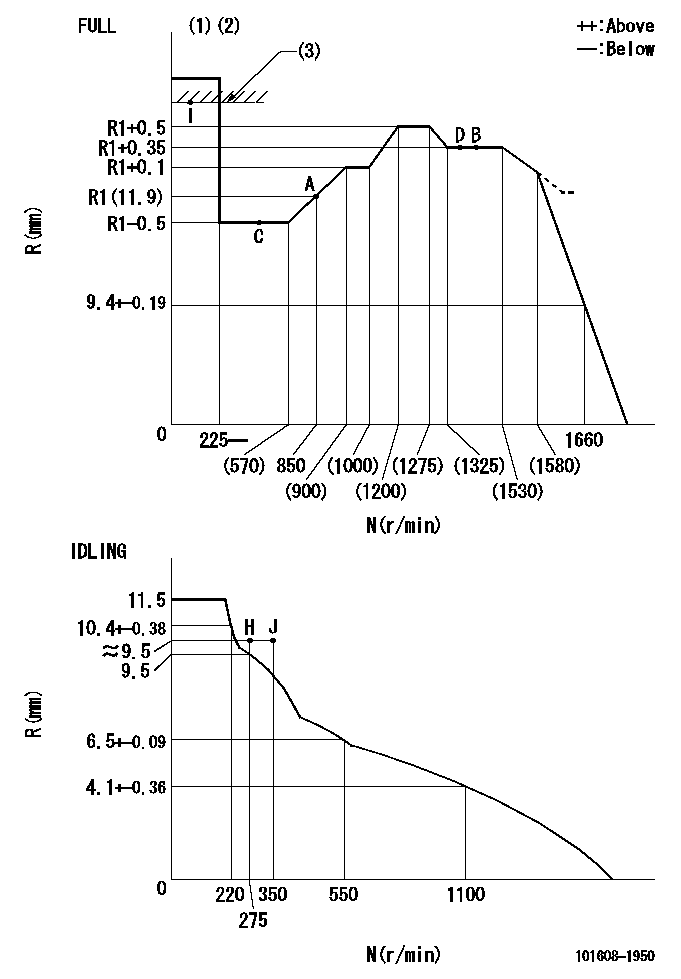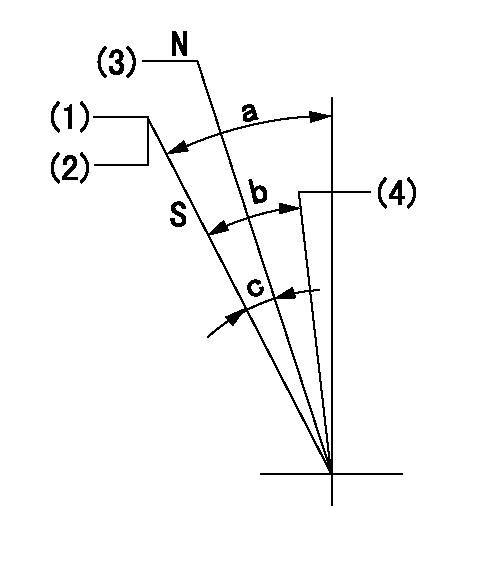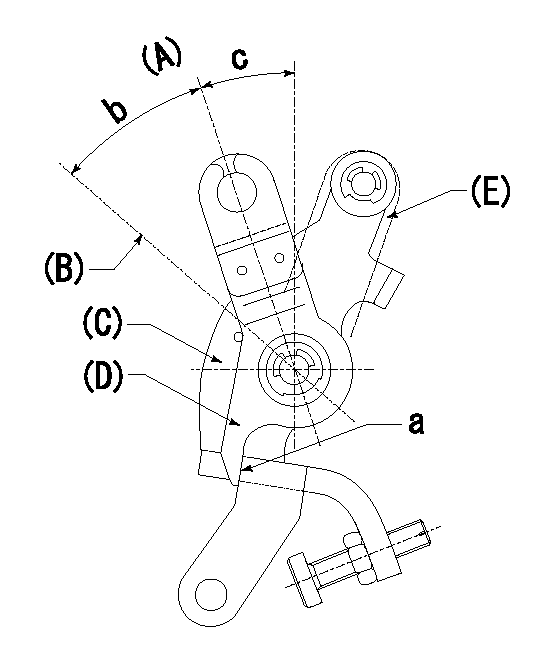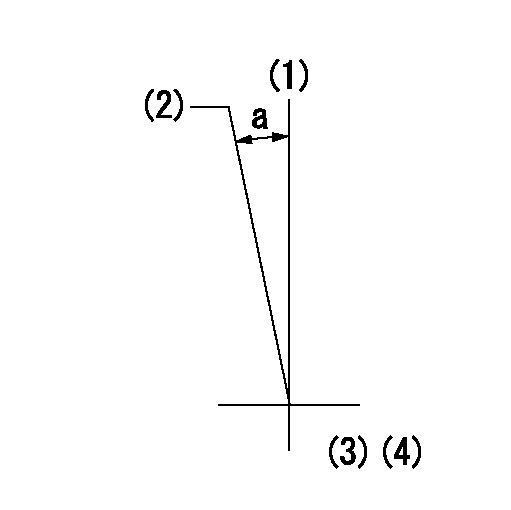Information injection-pump assembly
BOSCH
9 400 615 831
9400615831
ZEXEL
101608-1950
1016081950
MITSUBISHI
ME170447
me170447

Rating:
Include in #2:
104746-5790
as _
Cross reference number
BOSCH
9 400 615 831
9400615831
ZEXEL
101608-1950
1016081950
MITSUBISHI
ME170447
me170447
Zexel num
Bosch num
Firm num
Name
101608-1950
9 400 615 831
ME170447 MITSUBISHI
INJECTION-PUMP ASSEMBLY
6D17-2 K
6D17-2 K
Calibration Data:
Adjustment conditions
Test oil
1404 Test oil ISO4113 or {SAEJ967d}
1404 Test oil ISO4113 or {SAEJ967d}
Test oil temperature
degC
40
40
45
Nozzle and nozzle holder
105780-8140
Bosch type code
EF8511/9A
Nozzle
105780-0000
Bosch type code
DN12SD12T
Nozzle holder
105780-2080
Bosch type code
EF8511/9
Opening pressure
MPa
17.2
Opening pressure
kgf/cm2
175
Injection pipe
Outer diameter - inner diameter - length (mm) mm 6-2-600
Outer diameter - inner diameter - length (mm) mm 6-2-600
Overflow valve
131424-8420
Overflow valve opening pressure
kPa
255
221
289
Overflow valve opening pressure
kgf/cm2
2.6
2.25
2.95
Tester oil delivery pressure
kPa
157
157
157
Tester oil delivery pressure
kgf/cm2
1.6
1.6
1.6
Direction of rotation (viewed from drive side)
Left L
Left L
Injection timing adjustment
Direction of rotation (viewed from drive side)
Left L
Left L
Injection order
1-5-3-6-
2-4
Pre-stroke
mm
3.2
3.15
3.25
Beginning of injection position
Governor side NO.1
Governor side NO.1
Difference between angles 1
Cal 1-5 deg. 60 59.5 60.5
Cal 1-5 deg. 60 59.5 60.5
Difference between angles 2
Cal 1-3 deg. 120 119.5 120.5
Cal 1-3 deg. 120 119.5 120.5
Difference between angles 3
Cal 1-6 deg. 180 179.5 180.5
Cal 1-6 deg. 180 179.5 180.5
Difference between angles 4
Cyl.1-2 deg. 240 239.5 240.5
Cyl.1-2 deg. 240 239.5 240.5
Difference between angles 5
Cal 1-4 deg. 300 299.5 300.5
Cal 1-4 deg. 300 299.5 300.5
Injection quantity adjustment
Adjusting point
-
Rack position
11.9
Pump speed
r/min
850
850
850
Each cylinder's injection qty
mm3/st.
81.5
79.1
83.9
Basic
*
Fixing the rack
*
Standard for adjustment of the maximum variation between cylinders
*
Injection quantity adjustment_02
Adjusting point
Z
Rack position
9.5+-0.5
Pump speed
r/min
600
600
600
Each cylinder's injection qty
mm3/st.
10.8
9.2
12.4
Fixing the rack
*
Standard for adjustment of the maximum variation between cylinders
*
Injection quantity adjustment_03
Adjusting point
A
Rack position
R1(11.9)
Pump speed
r/min
850
850
850
Average injection quantity
mm3/st.
81.5
80.5
82.5
Basic
*
Fixing the lever
*
Injection quantity adjustment_04
Adjusting point
B
Rack position
R1+0.35
Pump speed
r/min
1450
1450
1450
Average injection quantity
mm3/st.
88
84
92
Fixing the lever
*
Injection quantity adjustment_05
Adjusting point
C
Rack position
R1-0.5
Pump speed
r/min
500
500
500
Average injection quantity
mm3/st.
59.5
55.5
63.5
Fixing the lever
*
Injection quantity adjustment_06
Adjusting point
I
Rack position
-
Pump speed
r/min
100
100
100
Average injection quantity
mm3/st.
95
85
105
Fixing the lever
*
Rack limit
*
Timer adjustment
Pump speed
r/min
1150--
Advance angle
deg.
0
0
0
Remarks
Start
Start
Timer adjustment_02
Pump speed
r/min
1100
Advance angle
deg.
0.5
Timer adjustment_03
Pump speed
r/min
1450
Advance angle
deg.
5
4.5
5.5
Remarks
Finish
Finish
Test data Ex:
Governor adjustment

N:Pump speed
R:Rack position (mm)
(1)Torque cam stamping: T1
(2)Tolerance for racks not indicated: +-0.05mm.
(3)RACK LIMIT
----------
T1=L01
----------
----------
T1=L01
----------
Speed control lever angle

F:Full speed
I:Idle
(1)Stopper bolt set position 'H'
----------
----------
a=18.5deg+-5deg b=42deg+-3deg
----------
----------
a=18.5deg+-5deg b=42deg+-3deg
Stop lever angle

N:Engine manufacturer's normal use
S:Stop the pump.
(1)Set the stopper bolt at pump speed = aa and rack position = bb (non-injection rack position). Confirm non-injection.
(2)After setting the stopper bolt, confirm non-injection at speed cc. Rack position = dd (non-injection rack position).
(3)Rack position = approximately ee (speed lever full, speed = ff).
(4)Free (at delivery)
----------
aa=1450r/min bb=7.2-0.5mm cc=275r/min dd=(8.8)mm ee=15mm ff=0r/min
----------
a=36.5deg+-5deg b=(25deg) c=13deg+-5deg
----------
aa=1450r/min bb=7.2-0.5mm cc=275r/min dd=(8.8)mm ee=15mm ff=0r/min
----------
a=36.5deg+-5deg b=(25deg) c=13deg+-5deg
0000001501 LEVER

(A) Idle
(B) Full speed
(C) Base lever
(D) Accelerator lever
(E) Accelerator lever delivery position
1. Measure speed lever angle
(1)Measure the angle when the accelerator lever (D) contacted the base lever (C) at a.
----------
----------
b=42deg+-3deg c=18.5deg+-5deg
----------
----------
b=42deg+-3deg c=18.5deg+-5deg
Timing setting

(1)Pump vertical direction
(2)Position of timer's tooth at No 1 cylinder's beginning of injection
(3)B.T.D.C.: aa
(4)-
----------
aa=7deg
----------
a=(4deg)
----------
aa=7deg
----------
a=(4deg)
Information:
Starter Motor - Model - CA45
General Description
Designed for flange mounting, the C.A.45 starter motor has a uniform cylindrical shape with no surface protrusion. This is because the solenoid and main switch assemblies are housed within the drive end-shield, around (i.e., co-axially with) the armature shaft.The essential feature of the co-axial starter is that, the pinion alone moves axially to engage the engine flywheel. There is no longitudinal movement of the whole armature assembly, as in the axial types.Smooth engagement of the pinion with the engine flywheel is constantly ensured by using two-stage operation of the solenoid and switch mechanisms. Thus the risk of damage to both pinion and flywheel, through faulty meshing, is practically eliminated.In construction, the starter consists of three main sections, into which it can be easily dismantled.1. The solenoid switch-gear and pinion assembly housed in the drive end-shield.2. The armature, shaft and commutator assembly.3. The yoke, pole-piece and field-coil assembly.Ready access is possible therefore, to those parts most likely to require adjustment, such as the switchgear and commutator assemblies.The starter is designed for working off a 12 volt supply, with 17 amps solenoid current.Testing on the Vehicle
Ensure that the battery is in a charged condition.Switch on the lamps and operate the starter button. If the starter fails to function, but the lights maintain full brilliance, check the switch and battery connections to the starter and all external leads. Sluggish action of the starter can be caused by a poor or faulty connection.Difficulty in smooth engagement between starter and engine flywheel is probably due to dirt on the starter-shaft helices preventing free pinion movement. The shaft should be thoroughly cleaned with kerosene followed by the application of a small quantity of Caltex Thuben 90 or SAE 90 oil.Operating the Starter
When starting the engine the following points should be rigidly observed
1. Press the starter button firmly and release it immediately the engine fires.2. If the engine does not fire at once, let it come to rest before pressing the switch again.3. Do not run the battery down by keeping the starter switch pressed when the engine refuses to start. Ascertain the cause.4. On some engines it is often helpful to depress the clutch when starting.5. Do not operate the starter when the engine is running as serious damage may occur to both starter and flywheel.Maintenance
Lubrication
The large oil reservoir in the drive end shield need only be replenished during overhaul periods, when a supply of Shelltella T27 or BP Energol SHF 100 oil should be added through the oil plug.An oil impregnated sintered bronze bush is fitted at the commutator end, and needs no further attention.Brush Gear and Commutator
Inspect the brushes at intervals of approximately 500 hours. See that they are free in their guides and that the leads are quite free for movement, by easing back the brush springs and pulling gently on the flexible connections. If a brush is inclined to stick, remove it from its holder and clean the sides with a petrol moistened cloth.Be
General Description
Designed for flange mounting, the C.A.45 starter motor has a uniform cylindrical shape with no surface protrusion. This is because the solenoid and main switch assemblies are housed within the drive end-shield, around (i.e., co-axially with) the armature shaft.The essential feature of the co-axial starter is that, the pinion alone moves axially to engage the engine flywheel. There is no longitudinal movement of the whole armature assembly, as in the axial types.Smooth engagement of the pinion with the engine flywheel is constantly ensured by using two-stage operation of the solenoid and switch mechanisms. Thus the risk of damage to both pinion and flywheel, through faulty meshing, is practically eliminated.In construction, the starter consists of three main sections, into which it can be easily dismantled.1. The solenoid switch-gear and pinion assembly housed in the drive end-shield.2. The armature, shaft and commutator assembly.3. The yoke, pole-piece and field-coil assembly.Ready access is possible therefore, to those parts most likely to require adjustment, such as the switchgear and commutator assemblies.The starter is designed for working off a 12 volt supply, with 17 amps solenoid current.Testing on the Vehicle
Ensure that the battery is in a charged condition.Switch on the lamps and operate the starter button. If the starter fails to function, but the lights maintain full brilliance, check the switch and battery connections to the starter and all external leads. Sluggish action of the starter can be caused by a poor or faulty connection.Difficulty in smooth engagement between starter and engine flywheel is probably due to dirt on the starter-shaft helices preventing free pinion movement. The shaft should be thoroughly cleaned with kerosene followed by the application of a small quantity of Caltex Thuben 90 or SAE 90 oil.Operating the Starter
When starting the engine the following points should be rigidly observed
1. Press the starter button firmly and release it immediately the engine fires.2. If the engine does not fire at once, let it come to rest before pressing the switch again.3. Do not run the battery down by keeping the starter switch pressed when the engine refuses to start. Ascertain the cause.4. On some engines it is often helpful to depress the clutch when starting.5. Do not operate the starter when the engine is running as serious damage may occur to both starter and flywheel.Maintenance
Lubrication
The large oil reservoir in the drive end shield need only be replenished during overhaul periods, when a supply of Shelltella T27 or BP Energol SHF 100 oil should be added through the oil plug.An oil impregnated sintered bronze bush is fitted at the commutator end, and needs no further attention.Brush Gear and Commutator
Inspect the brushes at intervals of approximately 500 hours. See that they are free in their guides and that the leads are quite free for movement, by easing back the brush springs and pulling gently on the flexible connections. If a brush is inclined to stick, remove it from its holder and clean the sides with a petrol moistened cloth.Be
Have questions with 101608-1950?
Group cross 101608-1950 ZEXEL
Mitsubishi
101608-1950
9 400 615 831
ME170447
INJECTION-PUMP ASSEMBLY
6D17-2
6D17-2